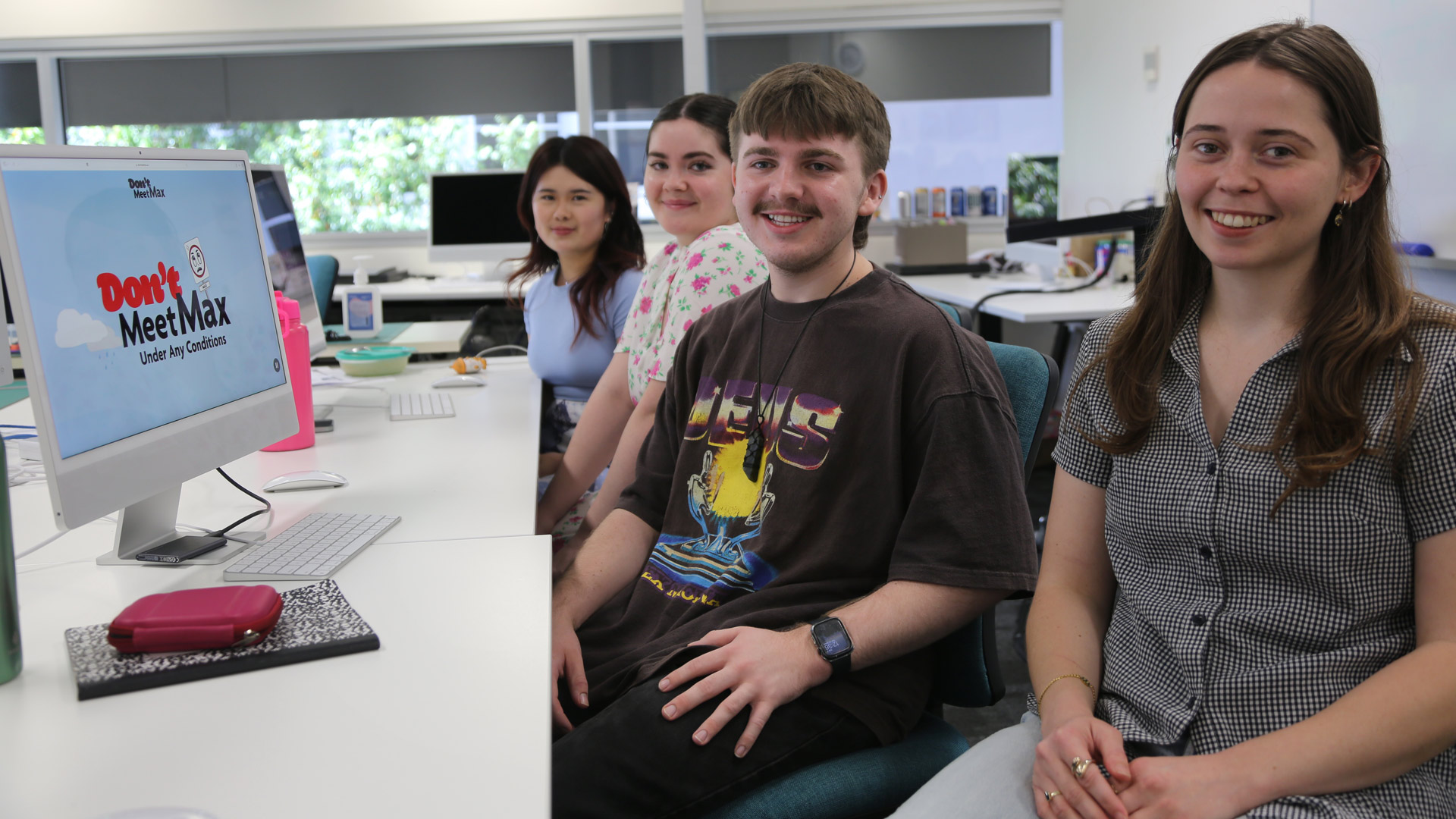Design students create winning road safety campaign
A team of four TAFE Queensland design students created a winning road safety campaign inspired by their peers that's now displayed on a billboard at Brisbane airport.
The Diploma of Graphic Design (CUA50720) students Darcie Melmeth, Thomas Gore, Ruby Ingra and Claire Sii created the ‘Don't Meet Max’ campaign for the 2023 Re:act road safety program.
In its eighth year, The Re:act Road Safety Behaviour Change program has seen over 1,000 Australian tertiary students participate to raise awareness and change behaviours among young Australian drivers.
Re:act is a road safety behaviour change program that uniquely collaborates with industry, government, higher education institutions, and students. The annual program challenges students to create road safety awareness campaigns to change driving behaviour among 17-25-year-olds, making our roads safer for all.
It allows students to develop a peer-to-peer campaign that positively influences the driving behaviour of young people and their community, with the TAFE Queensland team's 'Don't Meet Max' campaign selected as Queensland’s winner.
The student’s campaign focuses on the impacts of speeding on drivers aged 17-25. It challenges their attitudes and behaviours and inspires them to choose safer speeds and drive safely in different conditions.
Team member Darcie Melmeth said she and the team drew on their own experiences and the driving behaviours of their peers to create the 'Don't Meet Max' campaign, with the simple and direct messaging 'Don't meet Max under any conditions!'

"Throughout the design process, we researched and surveyed our friends and classmates to find out what they thought about speeding as newer drivers," said Darcie.
"Our research told us that many thought speed limits were the default speed to aim for while driving instead of a maximum. That's when the character of Max was born."
Max aims to connect with younger drivers through humour to educate them about safer speeds, why speed limits are set, and the impact of road conditions on driving safely.
"Young drivers aged 17-25 are at the most risk regarding the consequences of speeding. The closer you meet a max speed, the more risk is involved, especially when the road conditions have changed from rain, construction, or a school zone means extra caution."
"The safest way to drive is to avoid Max under any conditions. We want young drivers to know that driving at just 5km/h above the speed limit in urban areas doubles the risk of a casualty crash," continues Darcie.
"After considering the survey results, the team and I realised we also held this notion. So, we set out to reframe this behaviour by encouraging drivers to reconsider speed limits from a target to hit to a maximum to stay under," she concluded.
A panel of higher education, road safety, workplace safety and industry partners selected the TAFE Queensland teams’ campaign as the winner, which has been developed and launched across out-of-home media partner digital assets, including a billboard and installed at Brisbane’s Domestic Airport with a supporting website, https://www.dontmeetmax.au/
Matt Blair, Educational Team Leader, TAFE Queensland, said the Re:act program gave students the vital experience of engaging with multiple stakeholders to design a campaign that would resonate with young drivers.
"Our design students who participated in the Re:act program gained invaluable real-world skills and knowledge essential to kick-starting their careers," he said.
"We’re proud of this collaboration because it benefits our students and has the potential to improve the driving behaviours of young people.”
“If their campaign positively changes just one young person's habits behind the wheel, the whole process has been worthwhile," concluded Matt.